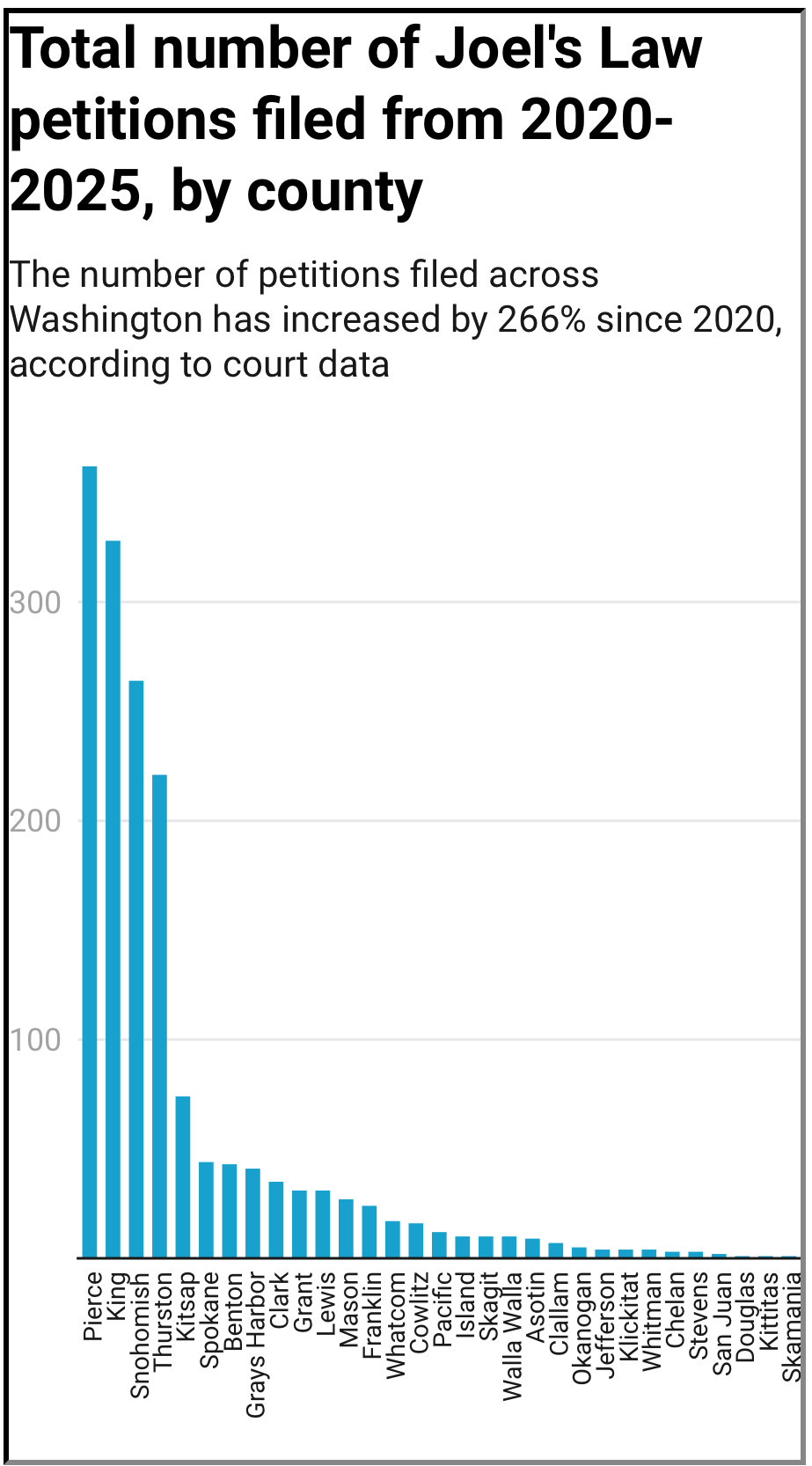Washington State Joel Law
In Washington State, the use of "Joel's Law" for involuntary commitments has surged, reflecting a growing reliance on this legal tool by families seeking mental health interventions for their loved ones. Tatiana Leone, a resident of Bremerton, exemplifies this trend. She carries a bag filled with documents detailing her son's mental health history, prepared for the possibility of encountering him in crisis. Her son, who is unhoused in Seattle, was involuntarily detained in 2020 under Joel's Law, but was released just three days later, continuing to cycle through the same systems.
Joel's Law, enacted in 2015, empowers families to petition the court for the involuntary detention of a loved one, bypassing the typical route through designated crisis responders. These responders, who are mental health professionals, usually recommend involuntary detainment if they believe someone meets the state's legal criteria. Despite its intent to amplify family voices, the law is just one step in a complex process that often does not lead to sustained treatment or support.
Since 2020, the number of Joel's Law petitions has increased by 266% statewide, with significant growth in the South and Central Puget Sound areas, including Pierce and Kitsap Counties. These regions have some of the highest per-capita rates of such petitions
among Washington's large counties.
The law's increasing use highlights ongoing debates about involuntary treatment. Some medical professionals and families argue
that the system is outdated, leaving many without care until they enter the criminal justice system. Critics question whether involuntary care is the right approach, suggesting that community-based treatments might be more effective.
Tara Urs, special counsel for civil policy and practice for the King County Department of Public Defense, empathizes with families who resort to Joel's Law, acknowledging the limited support available outside hospital settings. She notes, "I understand why people might want to be banging down the only door that might be available, even though I think it is the wrong door."
As the use of Joel's Law petitions rises, the debate continues over how best to provide accessible and effective mental health care, balancing the need for immediate intervention with the potential for community-based solutions.




